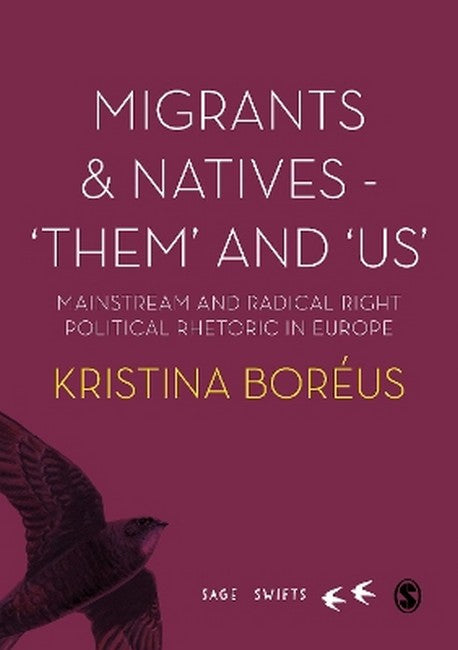Kristina Boreus is Professor of Political Science at Uppsala University, Sweden. She has studied ideology and ideological change, discrimination against migrants and racialized employees at Swedish workplaces, and right-wing populism in Austria, Denmark, and Sweden. Her publications in English include 'Patterned Inequalities and the Inequality Regime of a Swedish Housing Company' (with Ulf Moerkenstam, 2015, in Nordic Journal of Working Life Studies); 'Nationalism and Discursive Discrimination against Immigrants in Austria, Denmark and Sweden' (2013, in Wodak, R., KhosraviNik, M. & Mral, B. (eds) Right-Wing Populism in Europe, Bloomsbury Academic) and 'Discursive Discrimination: A Typology' (2006, in European Journal of Social Theory). She takes an interest in different kinds of textual analysis as method and theory and has published Textens mening och makt (with Goeran Bergstroem, Studentlitteratur), a Swedish textbook that appeared in its third edition in 2012.
Request Academic Copy
Please copy the ISBN for submitting review copy form
Description
Introduction: Making natives 'us' and migrants 'them' in European politics Why political rhetoric matters Why current rhetoric on migration and migrants is a concern Chapter 1: Anti-immigration and anti-migrant rhetoric as part of politics Aims of the book Contributions The rise of radical right parties in Western Europe The corpora On methods Chapter 2: Who should be let in? Four perspectives on immigration policy Labour migrants - threats or assets? Refugees - threats, rights-holders or objects of charity? Chapter 3: How should we live together? Two perspectives on integration Natives as 'us' and migrants as 'them' New inhabitants - rights-holders to what extent? Chapter 4: Accumulating poison? Rhetorical change since the 1980s in Austria, Denmark and Sweden The refugee/solidarity crisis Migration rhetoric before and after the crisis Discrimination - fought or forgotten? Chapter 5: Conclusions Summary of the findings: cause for concern Influence by the radical right parties? Epilogue
A key contribution to understanding migration discourses of radical right and racist parties across Europe. This detailed analysis further points out a frightening development: the normalization of right-wing populist and racist discourses among mainstream parties. As such, it is a crucial book for scholars and students of political science, discourse studies and social sciences in general. -- Edma Ajanovic Kristina Boreus' rich analysis of text and talk is firmly grounded in political histories, and her focus on the interplay of mainstream and radical right rhetoric and politics offers unsettling insights into the founding ideologies of European nation states. There is reason for concern - and it's not only the radical right we need to worry about. -- Stefanie Mayer Boreus uses a commanding knowledge of migration policy and an in-depth database on policy discourses to provide a forensic account of how these policies are discussed and shaped, both from the mainstream and fringes, in six key European country cases. -- William Allchorn This book delves into radical right and mainstream rhetoric and discourse about migrants, showing the influence on politics in Sweden, Denmark and Austria, all affluent welfare-state countries. Boreus shows in an accessible and methodologically accurate way that the rhetoric and the discourses that target migrants in a negative way contribute to naturalize discrimination and patterns of poisoning racialization. The author contextualizes the construction of identities of belonging and exclusion within the different political landscapes and she comparatively examines and dissects discourses and policies over a four decades' period. Her results reveal the role played over time by the radical and populist right in disseminating and influencing discourses about migrants based on threat and on native-first perspectives. Yet, the book also tells us that the mainstream parties are not to be held unaccountable of these developments, albeit there are variations in the rhetoric and politics. This book is a very useful companion for scholars and students with an interest in comparative politics, migration issues and history. -- Susi Meret

